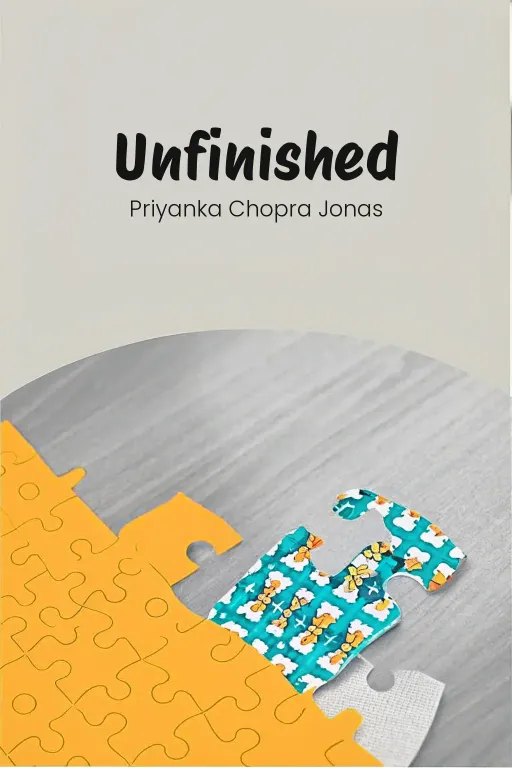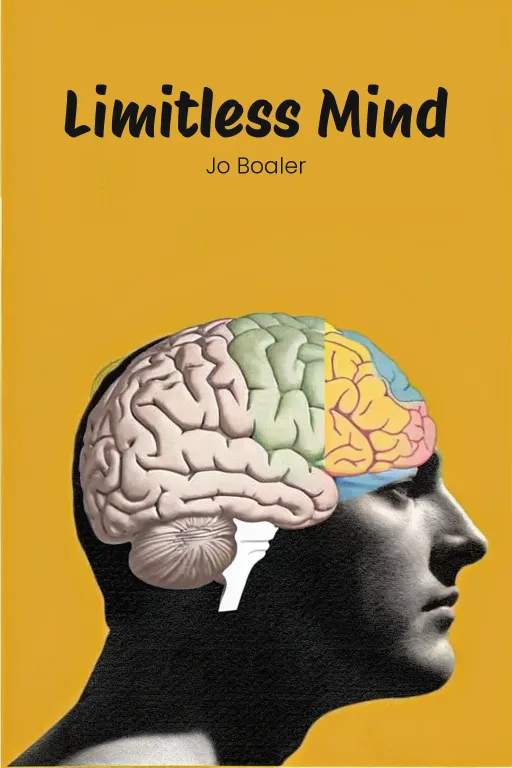
Find YOU in the Wilderness!
Podcast by Beta You with Alex and Michelle
The Quest for True Belonging and the Courage to Stand Alone
Find YOU in the Wilderness!
Part 1
Alex: Hey everyone, welcome back to the show! Today, we are diving deep into Brené Brown’s fantastic book, “Braving the Wilderness”. If you’ve ever felt like an outsider, struggled with being true to yourself versus fitting in, or wondered how to navigate the divides in the world today, trust me, this episode is for you. Michelle: Exactly. Brown “really” tackles a huge question: what does it “really” mean to truly belong? Here’s a little spoiler—it’s definitely not about keeping everyone happy or blending into the background. Actually, it’s about having the guts to stand alone if you have to. It’s an idea that can be both scary and freeing, depending on the day, right? Alex: Totally. This book is all about being authentic, having courage, and trusting others—what Brown calls the key to true belonging. She reminds us that belonging starts with accepting yourself, not waiting for others to approve of you. And while that's empowering, it also takes being vulnerable, bouncing back from tough times, and being okay with feeling uncomfortable. Michelle: And Brown isn't just throwing out big ideas; she gives us actual steps we can take. Today, we’re going to dig into three major points. First, we’ll look at her idea of what true belonging “really” means, which is probably different from what you think. Then, we’ll see how trust and courage are so important for making real connections with others. And finally, we’ll ask the big question: how do we actually use these ideas in our complicated, messy lives? Alex: You can almost think of the book as a map guiding you through the wilderness, a wilderness of social pressure, disagreements, and even your own doubts. But “really”, it's about finding clarity and connection by stepping into that wilderness being your true self and having empathy for others. Michelle: So, go ahead and pack your gear – metaphorically speaking, of course – and let’s explore this wilderness together. Ready to jump in?
The Foundations of True Belonging
Part 2
Alex: Okay, let's jump right in. A great place to start is Brené Brown's core concept: the difference between true belonging and just fitting in. She really breaks down how conforming is about seeking external approval, whereas belonging is about embracing your true self to build meaningful connections. It's not just about being accepted, but about self-acceptance, first and foremost. Michelle: Right, that all sounds great on paper. But, playing devil's advocate here, can we really afford to always prioritize being authentic over fitting in? We live in a world of social dynamics, right? Jobs, friendships, maybe even our safety can depend on blending in. Isn't there an argument for masking certain parts of yourself, just to survive? Alex: I get your point. Brown acknowledges that the pressure to conform is a real thing, particularly in situations where being yourself feels risky. But she also argues that constantly sacrificing your true self to fit in often leads to a sense of profound loneliness and isolation. She uses this "Big Sort" idea—where people cluster based on shared beliefs—to illustrate how these echo chambers create a surface-level sense of belonging, but at the expense of genuine connection. Michelle: That’s a solid point. These echo chambers might feel comfortable, maybe they give a false sense of community but they're really about enforcing shared beliefs, not an actual connection with other as individual. It’s like we're bonding over our similarities rather than engaging as real people. Alex: Precisely. Brown contends that this kind of conformity often strips away what makes us unique. She uses the term "spiritual disconnection"– this feeling of losing yourself in environments where fitting in means abandoning your values or your identity. It might seem easier in the short term, but it deprives us of the rich relationships that are built on trust and authenticity. Michelle: You know, that reminds me of the Bill Monroe story – the bluegrass legend that Brown uses. He grew up overshadowed by his older siblings, kind of left to his own devices and dealing with loneliness. But instead of withdrawing completely, he channeled that pain into his music. It's almost like his isolation became the very source of his creative voice. Alex: Absolutely. His signature "high lonesome" sound became this deeply moving expression of his experiences. And the amazing thing is, it wasn't just about his loneliness. It was authentic to him, and that resonated with so many listeners because it invited them into that shared emotional space. That's what Brown means when she says true belonging is about embracing what makes you, you – even when it feels isolating, because that authenticity can actually create deeper connections. Michelle: Okay, okay, but let's not get too romantic here. For every Bill Monroe, how many people put themselves out there, only to face rejection or just general misunderstanding? I mean, not everyone's heartbreak turns into iconic bluegrass. So, then, what happens when stepping into authenticity backfires or just feels, well, lonely? Alex: That's where Brown's concept of vulnerability becomes essential. She frames it as a form of courage – not necessarily guaranteeing success or universal acceptance, but really opening the door to real connection. Vulnerability, after all, is about allowing yourself to be seen, even when the outcome is uncertain. It's that emotional risk-taking that creates opportunities for trust and belonging. Michelle: Which brings us to her trust framework, the BRAVING model. I'll admit, I was impressed by how practical it is. It's like a set of guardrails for navigating the emotional risks of vulnerability. Each element – Boundaries, Reliability, Accountability, Vault, Integrity, Nonjudgment, and Generosity – makes sense on its own, but together, they're actually a guide to both giving and receiving trust. Alex: Exactly, and Brown emphasizes that trust isn't just about external relationships; it starts with trusting yourself. She argues that if you can't trust yourself – whether it's about holding boundaries or being accountable to your own commitments – it's really hard to create healthy connections with others. Take "Vault," for instance. The entire concept is about confidentiality. If you betray someone's trust by sharing secrets, that really undermines the connection. But if you keep confidences and act with integrity, you become someone people can rely on. Michelle: I love the idea, but it feels…ambitious, almost. Sure, we can try to practice generosity or non-judgment in our own relationships, but how does this scale up, then, when dealing with, let’s say, polarized communities? Brown talks about the "wilderness" of social divisions – where true belonging means refusing to stay in tribal bunkers or hiding behind groupthink. That's hard enough one-on-one. Tackling division at, like, a societal level feels…overwhelming. Alex: I hear you, but she uses that "wilderness" metaphor for a reason. It really isn't supposed to be easy. She describes stepping into the wilderness as standing in your truth, even when it feels isolating or uncertain. It's about choosing authenticity over fear and engaging with others, even across ideological divides, in ways that uphold empathy and respect. Michelle: Right. And that’s where Jen Hatmaker’s story really struck me. When she openly supported LGBTQ inclusivity, she went against the grain of her conservative community, and she faced serious backlash. That's stepping into the wilderness in a nutshell – walking away from the safety of group approval to stay aligned with her values. It took incredible courage, but she ended up finding a new community by staying true to herself. Alex: Exactly. Her resilience shows that, while that initial step into the wilderness might feel incredibly lonely – like you're cut off from all your old support systems – it can also be a profoundly liberating place. It's a space where you attract people who truly share your values, not because you've tried to fit in, but because you've stayed authentic. That's the heart of true belonging.
Courage, Vulnerability, and Trust (BRA VING)
Part 3
Alex: So, really understanding what it means to belong naturally leads us to consider the role of vulnerability and courage in building trust and connection. That's where Brené Brown’s BRAVING framework comes in. It's almost like a practical guide to cultivating trust, both with ourselves and others. What's really interesting is how it brings together the emotional weight of vulnerability with actionable steps we can actually take. Michelle: Yeah, grounding belonging in a framework like BRAVING is appealing. It really gets us past all the abstract stuff. So, how does this work? Are we saying we can sort of "engineer" trust using these elements, or is it more about creating a mental space where trust can grow? Alex: It's really a bit of both, actually. Brown sees trust as growing from vulnerability, which, let’s face it, can be messy. The BRAVING framework isn't about creating trust out of thin air. It's about clarifying the conditions that allow trust to actually develop. Each element highlights specific actions that either build trust or break it down. Like, for instance, boundaries are a key starting point. Without clear boundaries, trust just isn't going to be stable. Michelle: Okay, let me throw something out here. Say I have a friend who always complains about their problems, but never asks about me. If I set a boundary and say I can't always be their sounding board, won't they think I'm not supportive, or even selfish? Alex: That's a valid point, but that's where Brown’s perspective on boundaries helps. She says they're not about pushing people away, but about making sure relationships can last. In your example, setting a boundary isn't about avoiding empathy, it's about protecting your ability to offer it. Without boundaries, resentment builds, and that can destroy trust. Brown says boundaries are about self-respect and mutual respect. You're saying, "Our friendship is important, so it needs to be healthy for both of us." Michelle: Right, that makes sense in close relationships. But reliability, which is next on the list, seems different. Unlike boundaries, it's not just about setting limits; it's about showing you're dependable. That sounds simple. Just do what you say, and trust will follow, right? Alex: Well, reliability has layers too. It's not just about huge promises, like being there in a crisis. It's about being consistent in everyday things. Brown points out that reliability requires you to know yourself. Overcommitting or constantly letting things slip can erode trust. People start wondering if they can really count on you. Michelle: So, like being that friend who is always late or the coworker who "forgets" deadlines. Small things, but they eat away at trust over time. Alex: Exactly. And that's connected to accountability, our next element. Even when you mess up on reliability, accountability can help fix things. Brown says this means owning your mistakes, apologizing genuinely, and making things right. It's taking responsibility instead of making excuses. Michelle: So, accountability is for when you mess up, which, let's be honest, is going to happen. But integrity? That feels like an even bigger deal. Brown says it's about "choosing courage over comfort" and living by your values. That sounds like a high standard. Alex: It is. But it's where vulnerability and courage meet. Integrity means making the tough choices – choosing honesty, even when it's difficult or scary. It's showing people who you are by sticking to your principles. Remember how she said, "choose what's right over what's easy"? That’s integrity in action. Michelle: Okay. Now, the vault—that's probably the most straightforward part of this framework. I like the simplicity: if someone trusts me with something personal, I keep it private. No gossip, no leaks. Seems obvious, right? And yet, we've all seen friendships fall apart because of broken confidences. Alex: Absolutely, and Brown really hits on how important it is. Without the vault, there’s really no trust. If you think someone will spill your secrets, you'll never feel safe being vulnerable around them. And remember, keeping the vault isn't just about keeping sensitive information safe, it's about not using someone's vulnerability against them, which can be even more damaging. Michelle: Right, like when Carla turned Mary’s personal story into a funny story at the party, the trust was broken. Mary was humiliated, and rightly so. But what’s key is that Carla takes responsibility and actively works to regain Mary’s trust. That’s integrity and the vault working together. Alex: Exactly! The story gets across how delicate trust is, but also that it can be rebuilt. It reminds us that even when trust is broken, it doesn’t have to be the end of the road. If both people are willing to be vulnerable and accountable, and if they uphold the other BRAVING elements, the relationship can recover. Michelle: And let’s not forget non-judgment and generosity. Together, they create the emotional space where vulnerability can be shared. Non-judgment, Brown says, is about creating a space where someone can express themselves without being afraid of being criticized. And generosity asks us to think the best of others, even when there are misunderstandings or mistakes. Alex: Definitely a powerful pair. Non-judgment assures people that they won’t be shamed, while generosity encourages us to understand their actions with kindness. These elements make relationships feel safe, even when things aren’t perfect. Michelle: So, how does all this apply to trusting ourselves? We've been talking about relationships with others, but Brown emphasizes that it all starts with ourselves. How do boundaries, reliability, and generosity translate when you're working on trusting yourself? Alex: That's such a great question. You build self-trust in the same way. Setting personal boundaries, for example, means protecting your time and energy, not pushing yourself too hard to please everyone else. Reliability is about keeping promises to yourself, even when no one is watching. And self-generosity? That’s about being kind to yourself when you fail. Brown believes that you can’t really show these behaviors to others until you practice them yourself. Michelle: So, basically, trust isn't just a feeling. It's a practice that's built on consistent actions, as shown in the BRAVING framework. Vulnerability is the first step, but building and keeping trust takes constant work. It’s not always easy or comfortable, but it’s honest, and it’s how we build connection and community. Alex: Exactly, and it reminds us that courage and vulnerability aren’t separate paths. They’re really the same thing, guiding us toward authentic, meaningful relationships. Michelle: Well said. Which, of course, leaves us with one tough but unavoidable truth: in order to trust and be trusted, we have to be brave enough to show up completely as ourselves.
Navigating the Wilderness: Authenticity in Action
Part 4
Alex: Okay, so we've established trust and vulnerability as essential, right? Now let's dive into how this actually plays out when dealing with real-world challenges and societal divisions. Brown talks about this "wilderness," but it's not just a personal thing. It's a shared space where we're all tested – our authenticity, our courage, and how well we connect with each other, especially when the world feels so polarized and disconnected. Michelle: Exactly! And the thing is, Brown isn't just saying, "Be yourself!" for the sake of it. She's pushing us to act authentically, which means engaging with the world in a way that actually builds bridges, not walls. It's putting your money where your mouth is, isn't it? Alex: Precisely. So, today we’re going to unpack how she illustrates this through four key ideas: the duality of belonging, the need for inclusive civility to tackle polarization, why emotional safety is crucial for connection, and finally, the power we have when we recognize our shared humanity. It's about linking personal growth to making real, positive changes in society. It really makes you think about what being authentic actually means in practice. Michelle: So, let’s start with this "duality of belonging" – standing on your own, and connecting with others. I think this is fascinating, Alex, because it totally challenges the usual "either-or" thinking. What Brown’s saying is that true belonging is basically a paradox. You might have to step away from the crowd, stand alone with your values, but that’s what opens you up to more genuine connection with others. What do you think? Alex: Absolutely, and Brown illustrates it so beautifully. The story of Jen Hatmaker springs to mind. Here’s someone who publicly supported LGBTQ inclusivity, knowing it could alienate her from the conservative Christian community that had been so welcoming for years. And it did. She faced criticism, public shaming, the loneliness of breaking away. Initially, it seems like pure isolation, right? Like stepping into the wilderness alone. Michelle: But that so-called wilderness wasn’t a complete wasteland! What I find so compelling about Hatmaker’s story is that she didn't just swap one group for another. She ultimately found people who accepted her for who she truly was. And those relationships didn't demand blind loyalty or conformity. Is that the kind of duality Brown is talking about? You stand alone with your truth, and because of that, you connect with people who are also navigating their own “wildernesses” authentically. Alex: Exactly! It's choosing integrity over safety, but it can be super scary. Brown emphasizes that choosing authenticity is no guarantee of comfort. Losing her original community was undoubtedly painful for Hatmaker, but it was also incredibly freeing. It proves that belonging is about genuine connection and shared values, not just fitting in or adhering to norms. Michelle: Okay, let's get real for a second. How many of us actually make those kinds of decisions in our daily lives? Like, choosing our principles or authenticity over the comfort of being accepted. Especially in a world as divided as ours, it's often easier to hunker down with your tribe than to risk stepping outside of it. Alex: And that's precisely where the second piece comes in: tackling polarization with inclusive civility. Brown argues that we can't navigate these divisions by just retreating into echo chambers. Civility isn't about dodging conflict. It's about engaging differently, with respect, vulnerability, and refusing to dehumanize the other side. This isn’t just some nice idea; it's a must if we're going to repair these fractured social and political relationships. Michelle: Right, and Brown really zeroes in on the language we use, doesn’t she? She points out how dehumanizing language – calling immigrants "aliens" or demonizing those who disagree with us – makes real dialogue impossible. It erodes empathy. If you can't see someone else’s humanity, where's the starting point for connection? But is this really practical? I mean, anger can be a powerful motivator, especially when we feel wronged. Alex: It’s hard, no question. But Brown pushes back against the notion that feeling angry justifies dehumanizing someone. Choosing to reject harmful rhetoric is, in itself, an act of moral courage and leadership. She talks about having "courageous conversations" – engaging across divides, not necessarily to agree, but to listen, to hold space for someone else’s humanity, even when you disagree. Recognizing our own biases is key. Michelle: So, let's get tactical. One thing she suggests is interpreting other people's words and actions generously – assuming positive intent, even when it's easier to assume the worst. That's a tall order, especially when yelling matches and Twitter wars dominate public discourse. Can we really do that without feeling like we’re giving in? Alex: It's absolutely not about giving in. Brown’s point is that generosity doesn't mean agreeing with everything or excusing harm. It's about leading with curiosity and care. Instead of escalating disagreements, ask questions. Try to understand why someone holds a different perspective. And this is where emotional safety comes in. You need to create an environment where those tough conversations can happen without fear of being shamed or shut down. And that leads us to the third theme: fostering belonging through emotional safety. Michelle: Ah, psychological safety. I find that so interesting because, let's be honest, most of us have been in situations, whether it work, maybe family setting... where it just wasn't safe to express ourselves. And it's not always about outright hostility, right? I think most of the time, it's feeling judged, or maybe dismissed. Alex: Definitely, and Brown provides a great example of how emotional safety can be destroyed even when the intentions are good. She talks about a son who, feeling frustrated by his father’s use of outdated terminology, reacts harshly. The confrontation is sharp, and instead of creating dialogue, it shuts things down completely. Emotional safety means balancing honesty with generosity – saying, “can I explain why this might be offensive?” rather than just attacking. Michelle: Which, let's be honest, requires a ton of self-awareness and patience. It’s easier to just lash out, especially when things feel personal. But Brown emphasizes setting boundaries as an integral part of emotional safety, right? The "vault" concept from the BRAVING framework. If the father in her story knew he could make mistakes without being humiliated, maybe he would have been more open to changing his language. Alex: Precisely. Emotional safety builds vulnerability. It allows people to express themselves without fear, which is so essential for building trust. And it’s not just interpersonal. Think about workplaces that encourage innovation – psychological safety is what allows people to share bold ideas. Without it, you risk compliance, not creativity. Michelle: Okay, so we’ve talked about standing alone, countering polarization, and emotional safety. Let's wrap up with something that feels… well… universal. The collective power of recognizing our shared humanity. Even in the wilderness of division, Brown finds hope in those moments where we come together. Music, art, sports, shared grief… she identifies these as pretty powerful antidotes to loneliness. Alex: Right. Her example of “high lonesome” bluegrass shows how art can transform isolation into connection. Music, storytelling, collective rituals – whether joyous or mournful – remind us of what we share as human beings. Even during times of heartbreak, these moments make us feel seen, less alone. Michelle: It's interesting, isn't it? We can be so isolated, yet we crave these connections. Think about those spontaneous moments Brown describes – singing together at a concert, vigils, grieving collectively after a tragedy. Isn’t it amazing how, even amidst all of our differences, a simple song can bring us together? Alex: That’s the heart of it. Shared emotional experiences cut through those divisions. They allow us to tap into our collective humanity, which underlies Brown’s core message. It's a reminder that, while the wilderness can be intimidating, it’s also a place where beauty and community can flourish.
Conclusion
Part 5
Alex: Okay, as we're coming to a close, let's think about the big takeaways from “Braving the Wilderness” The real sense of belonging? It's not about trying to squeeze in or getting everyone to like you. It's about being genuinely you, even when it feels, well, awkward or like you're all alone. Brené Brown “really” pushes us to realize that belonging starts with us accepting ourselves, trusting ourselves—and that takes courage, and yeah, a little vulnerability. Michelle: Exactly. And it's not just empty inspiration, right? She gives us something concrete to work with. This BRAVING framework is like a map for building trust and real connection, with other people, sure, but also with ourselves. Each piece of it, from setting boundaries to being generous, reminds us that trust isn't just handed out. You build it, bit by bit, through consistent actions. Alex: Absolutely. And then you've got this idea of the "wilderness" itself. It's a metaphor, right? For navigating a world that feels so divided, and finding your strength by staying true to yourself. It's about actually talking to people, even when you disagree, refusing to treat anyone like they're less than human, and making it safe enough to have a real conversation. Underneath it all, she’s calling us to connect through what makes us all human. Michelle: You know, what “really” sticks with me is this idea that courage and discomfort are two sides of the same coin. Whether it’s standing up for what you believe in even if you're standing alone. Whether it's actually trying to understand someone who sees the world differently than you do, or even just trusting your own gut, that's where the real magic happens. That's where you grow, and that's where you connect in a meaningful way. Alex: Yes! Brené Brown’s core message is both profound and incredibly simple. True belonging demands bravery. It's not a walk in the park, but it's so worth it. It's worth it for you, for your relationships, and honestly, for the bigger picture – for society. Michelle: So, here’s our little challenge to everyone listening: this week, think about one small step you can take into your own wilderness. Maybe it’s finally setting that boundary you’ve been putting off. Maybe it’s taking a chance and being vulnerable with someone. Or maybe it’s reaching out to someone you've been avoiding because you know you disagree. Whatever it is, remember that belonging begins when you choose to be authentic, even when you're scared. Alex: And like Brené Brown says, vulnerability isn’t a sign of weakness. It is a show of courage. So, be brave, trust yourself, and trust in the connections you can build. Thanks for joining us as we explored this awesome book. We'll catch you next time! Michelle: Take care, everyone, and remember don’t be afraid to wander into your own wilderness.









